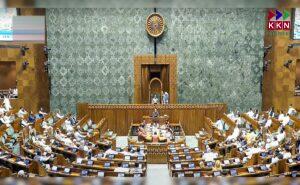Supreme Court Begins Crucial Hearing on Waqf (Amendment) Act 2025

KKN Gurugram Desk | In a landmark development, the Supreme Court of India on Wednesday began hearing a series of petitions challenging the constitutional validity of the Waqf (Amendment) Act, 2025. The three-judge bench, led […]



